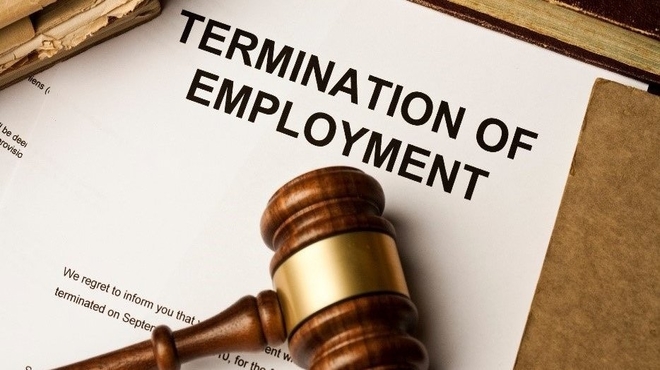How to mail to HR for full and final settlement?
April 03, 2024 हिंदी में पढ़ेंTable of Contents
- What is Full and Final Settlement/ FnF Settlement in payroll?
- What components are used to decide the Full and Final Settlement / FnF Settlement sum?
- What is the period of processing the Full and Final/ FnF Settlement?
- What necessary measures that an employee must do to ensure no complications?
- Under which law can an employee seek relief?
- Full and Final Settlement under Code on Wages, 2019
- Why do you need a lawyer at the time of Full and Final Settlement?
- What is the general mail format requesting the Relieving Letter and Full and Final settlement from HR?
- What is the general mail format in case of delay in the processing of the Full and Final Settlement/ FnF Settlement by HR?
- What is the general format of a Full and Final Settlement Letter from HR to the employee?
What is Full and Final Settlement/ FnF Settlement in payroll?
When an employee is leaving the company, he has to get paid for the last working month. This procedure of paying or recovering during the resignation process is called Final Settlement. Final settlement can be done on the last working payroll month or subsequent months. The employee can be settled first and then resigned or you can resign an employee and then do the final settlement at a later date.
What components are used to decide the Full and Final Settlement / FnF Settlement sum?
The following are the components that go into determining the Full and Final Settlement/ FnF Settlement sum:
-
?Outstanding unpaid salaries that also include annual benefits like travel allowance are calculated by multiplying the days worked by the gross pay and dividing it by 26 (the average number of paid days per month).
-
Unpaid bonus
-
Payment for non-availed leaves, which is determined by multiplying the number of days of non-availed leave by basic salary and divided by 26.
In addition to standard components, other considerations may apply:
-
Gratuity if an individual completes four years and 240 days of service. This should be provided within 30 days of resignation, in accordance with the Gratuity Act 1972. Failure to pay gratuity may incur interest.
-
Pension is granted after at least six months of service with the current employer and ten years of pensionable service upon presenting a Scheme Certificate after reaching retirement age.
-
Deductions cover profession tax, provident fund, ESIC, income tax, and compensation for any unserved notice period.
What is the period of processing the Full and Final/ FnF Settlement?
In terms of settlement time, the final settlement must occur on an employee's departure day. However, due to clearance procedures, it's common policy to settle within 30-45 days post-employment. For gratuity, it is stipulated within 30 days of leaving the company, while bonuses should be paid within the current accounting year.
What necessary measures that an employee must do to ensure no complications?
-
Make sure to settle any advances taken or get them adjusted in the final settlement.
-
Get a copy of all the various clearances required from the different departments of the organization that you were attached with.
-
Refer to the standing orders of the company, employee rule book, HR policy handbook, etc. All such policies should be kept within the reach and knowledge of the employee. If these policies are not available you may demand these and also try and obtain them from some colleague.
-
Instead of making verbal communications you should address written representation under acknowledgment to your HR contact and narrate all representations by phone (mention phone numbers, date, time, etc.) and minutes of discussion, followed by escalation to MD, Chairman, Company Secretary, with a copy to Head-HR and raise your queries.
Under which law can an employee seek relief?
An employee can seek relief under the Industrial Employment Standing Orders Act, SE Act applicable to the state, Payment of Wages Act, and ID Act as per the explanation of the employee under these enactments or through Civil Court. In the case of The Oriental Insurance Co. Ltd. v. Dicitex Furnishing Ltd., the insurer appealed a decision by a single judge of the Bombay High Court. The judge allowed the respondent's arbitration application under Section 11(6) of the Arbitration and Conciliation Act, 1996. The insurer argued that the respondent's acceptance of a settlement implied no need for arbitration, having signed a discharge voucher and received payment. However, the court rejected this, stating that executing a full and final agreement and receiving a discharge voucher doesn't automatically block arbitration. Similarly, in V. Ramasubramanian v. The Oriental Insurance Co. Ltd., the court determined that arbitration can still be pursued even if a full and final agreement is made and a discharge voucher is received. Consult the best labour service lawyers near you.
Full and Final Settlement under Code on Wages, 2019
The Code on Wages, 2019 seeks universalization of the laws related to the timely payment of wages and minimum wages to the employees. Besides quicker settlements, the Code on Wages has increased applicability to a broader class of employees. The provision related to the early settlement of dues has maximized coverage by extending the applicability of provisions to the unorganized sector. The Payment of Wages Act currently sets a timeline for wage payment, but it lacks clarity on various matters, including final settlement upon resignation. The upcoming Code on Wages is expected to improve compliance and provide clearer guidelines once enforced.
Why do you need a lawyer at the time of Full and Final Settlement?
If your salary and dues have not been paid even after the due dates, you can take legal action against the employer and for this, you should hire a lawyer . If you are aggrieved, you can send a legal notice, or approach the labour commissioner, the labour court, the civil court, or the NCLT. However, a lawyer will be able to guide you best as to what direction you should take, depending upon the facts and circumstances of your particular case. He/she is an expert in such matters and will help you find the best way out and take care of all the legal documentation and appearances in court.
What is the general mail format requesting the Relieving Letter and Full and Final settlement from HR?
The GM- HR, ......................(Name of Company) Re: Issuance of Relieving Letter and Full & Final Settlement Dear Sir / Ma'am [HR Representative], I am writing to request the Full and Final (FnF) Settlement and Relieving Letter for my employment with your esteemed [company name]. As you know, my last day of work was [date], and I have finished all my remaining tasks and passed on my duties to my successor. I kindly request the issuance of my full and conclusive settlement along with the relieving letter at your earliest convenience. These documents are essential for my forthcoming job applications and other endeavours. Please ensure that the settlement encompasses any remaining compensation owed to me, including outstanding benefits and allowances. I respectfully inquire about the status of the settlement process and the expected timeline for receiving the settlement amount and relieving letter. Your prompt attention to this matter would be greatly appreciated, as any delay could pose challenges for me. Thank you for addressing this matter. Kindly inform me if any additional details or records are necessary for the settlement and issuance of the relieving letter.
The details are as below: Name : Employee Code : Designation : Project : Date of resignation : Thanking you Kind Regards ..........(Name) ..........(Current Address)
What is the general mail format in case of delay in the processing of the Full and Final Settlement/ FnF Settlement by HR?
The GM- HR, ......................(Name of Company) Re: Issuance of Full & Final Settlement Dear Sir/ Madam [HR Representative],
I am writing to follow up on the full and final settlement for my employment with [company name]. Despite several reminders, I have not received any communication or settlement amount from your side.
As per our employment contract and company policy, I am entitled to receive the remaining compensation owed to me, as well as any outstanding benefits and allowances. However, it has been [number of days/weeks/months] since my employment ended, and I am yet to receive the settlement amount.
I would like to request an update on the status of the settlement process and when I can expect to receive the settlement amount. The delay has caused me significant financial strain and inconvenience, and I kindly request your immediate attention to this matter. Please note that the settlement delay is causing me hardship, leaving me with no choice but to take legal options. I would like to avoid this situation and hence request that you settle the dues in a timely manner.
Thank you for your attention to this matter. I look forward to hearing from you soon.
The details are as below: Name : Employee Code : Designation : Project : Date of resignation : Thanking you Kind Regards ..........(Name) ..........(Current Address)
What is the general format of a Full and Final Settlement Letter from HR to the employee?
[Company Letterhead] [Date] [Employee Name] [Employee Address] [City, State, Postal Code] [Employee Email] Subject: Full and Final Settlement Letter Dear [Employee Name], We regret to see you leave the organization but we would like to thank you for the valuable contributions you made during your tenure with [company name]. As you are aware, your last working day was on [date], and all of your pending tasks have been completed, and the responsibilities have been handed over to your successor. We have processed your Full and Final Settlement, which includes the remaining compensation owed to you, as well as any outstanding benefits and allowances. Please find below the details of your settlement: Salary in lieu of notice period: [amount] Payment of earned leave days: [amount] Provident Fund (PF): [amount] Gratuity: [amount] Any other benefits or allowances: [amount] Total: [amount] Please note that this settlement amount has been calculated based on the information available to us. If you have any discrepancies or concerns, please let us know as soon as possible so that we can address them. The settlement amount will be credited to your bank account, and you should receive a confirmation email once the transfer has been made. Please ensure that the bank account details provided to us are accurate. We would like to take this opportunity to remind you that you have signed a confidentiality and non-compete agreement with our organization, which is binding even after the termination of your employment. We thank you for your cooperation throughout your tenure with us and wish you all the best for your future endeavours. Sincerely, [HR Representative] [Company Name]
These guides are not legal advice, nor a substitute for a lawyer
These articles are provided freely as general guides. While we do our best
to make sure these guides are helpful, we do not give any guarantee that
they are accurate or appropriate to your situation, or take any
responsibility for any loss their use might cause you. Do not rely on
information provided here without seeking experienced legal advice first. If
in doubt, please always consult a lawyer.
The internet is not a lawyer and neither are you.
Talk
to a real lawyer about your legal issue.

Comments by Users
Vivek
In company after 3 months they took 2 months gross salary as notice pay and denied to give relieving and experience certificate.
What should i do now?
Reply by LawRato
One can approach the Court for non-payment of dues /salary. You can contact a lawyer and send a legal notice to the said Company to initiate the legal proceedings. However, since your question is specific and requires more information in order to guide you better, it is advised that you click on the link below and send in your query for Free Legal Advice.
niranjan
Your reply was very precise !
What action can be taken if the employer does not pay the performance pay which is part of the employee's CTC, during final settlement???
Reply by LawRato
An employer is liable to pay the full and final (FnF) amount after the termination of employment of an employee. In case, the employer is withholding an amount which forms part of the FnF, you may send them a legal notice followed by filing a civil suit for recovery. It is also advised to engage the services of a labour lawyer.
Related Articles
- Can contractual employees of central govt avail maternity leave
- Is it necessary to mention my marital status in government application
- Employer- Employee dispute & i went Absconding now got legal notice
- How to mail to HR for full and final settlement? (Letter Format)
- Got selected in govt. job. Joining process started. IPC case pennding.
- Is police complaint possible against a firm who is not paying salary?
- Facing mental harassment from boss at workplace.what action can i take
- Worked 85 days in LIC as temporary employee is SC judgement applicable
- will a govt employee be suspended if jailed for 48 hrs
- Can I apply for my father's job after his death
- Procedure for cancellation of PF & ESI registration by a company
- Regarding regularization of contractual employee in central government
- What is the minimum pay scale in private sector company?
- Illegal Termination and Salary Due Recovery
Labour & Service Law Articles
User Reviews
it’s a very nice legal article
nicely explained. Thanks fro the information
who can I contact for my legal case?
Good work with the article. Solved all my legal queries. Regards.
good work
Nice piece on the subject.
amazing article
The article is written ver well. Learned a lot about my case through this.
can you share your helpline number
more info needed on the law
I have a case. Who can I contact?
Tells all the legalities about the subject. Good work.
good article. Please provide more info
very helpful
It’s a very nice article.
Very informative and a good read as well.
needed legal advice…who to call
very informative. Can you tell more about this
good work
VIEW ALL


 658+ Lawyers are online
658+ Lawyers are online 









